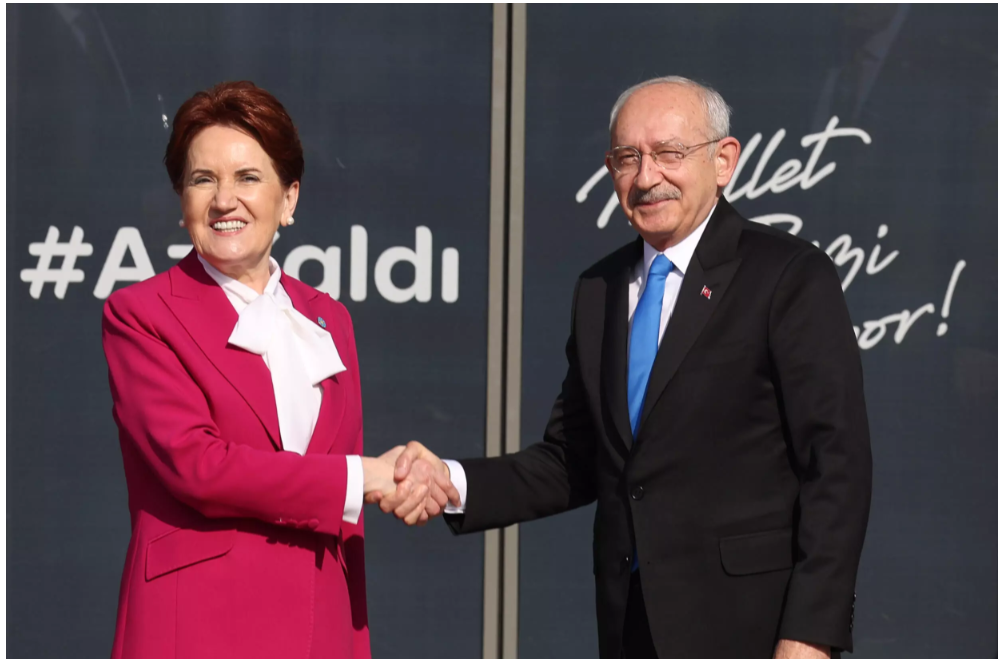In Turkey, fears grow of Erdogan postponing elections as earthquake toll passes 30,000, wrote Ezgi Akin, as a former heavyweight in AKP, Mr. Bulent Arinc posted a long letter to the public, urging the Grand Assembly to postpone elections to March 2024, rather than the current constitutionally mandates date of no later than 18 June.
AFP commented “The earthquake, and indeed any delay to the vote, could transform the political landscape, presenting both Erdogan — who was first elected president in 2003 — and his rivals with new opportunities and risks, experts say”.
Ruling and opposition party sources now feverishly speculate that Erdogan will delay the May 14 presidential and parliamentary polls in the wake of Turkey’s worst disaster of modern times.
“This is going to change things — not just for the government, but also for the opposition,” said Berk Esen, an assistant professor of political science at Istanbul’s Sabanci University.
The earthquake, and indeed any delay to the vote, could transform the political landscape, presenting both Erdogan — who was first elected president in 2003 — and his rivals with new opportunities and risks, experts say.
Unable to agree on a candidate for more than a year, Erdogan’s opponents now have more time to come to a consensus with Monday’s meeting postponed indefinitely.
They must use that time wisely, analysts say, trying to tap into public anger over the monumental scale of the destruction without appearing to seek political gain from the tragedy.
“The horrific events have handed the political opposition new ammunition against the government — ammunition propelled by public anger and grievance,” said Anthony Skinner, a political risk consultant.
Erdogan has not uttered a word about elections since the earthquake, but appears on television multiple times a day, hugging survivors and consoling the nation. His PR persons, though, are busy leaking word to the press that elections must be delayed to focus on rebuilding.
‘Duty to hold vote’
Meanwhile, in the Nation Alliance front (the main opposition alliance) Kemal Kilicdaroglu (Chairman of main opposition party CHP), a bookish former civil servant with tepid national support who heads Turkey’s main secular party, has long been seen as the frontrunner in the bid to end Erdogan’s rule.
But Meral Aksener of the nationalist Iyi Party has resisted Kilicdaroglu, appearing to back instead Istanbul’s popular opposition mayor Ekrem Imamoglu.
“The opposition was already in a very delicate position” as divisions were rife, Esen said.
Esen said Kilicdaroglu is now more likely to become the opposition candidate because “it’s going to be very difficult” for someone else to campaign openly at the time of national grief.
Experts believe a May vote is out of the question but that it could take place in June, the latest date by which elections must happen according to the constitution.
Erdogan cannot postpone the election beyond June without changing the constitution, and for that, he would need a two-thirds majority in parliament.
That requires 400 votes. Erdogan and his far-right parliamentary allies only have 333, meaning that he would need the opposition to back a longer delay.
Sinem Adar, an associate at the Centre for Applied Turkey Studies in Berlin, said one pillar of the opposition’s strategy should be to ensure the elections happen by June.
Aksener, for one, is pushing for a June vote.
Confronting Erdogan
“It is our duty as politicians to hold this vote,” she told journalists last week.
But the opposition has also been divided in its response to the earthquake.
Aksener opted to stay quiet and avoid quake-hit regions in the first few days, while Kilicdaroglu swiftly visited affected areas, seeking to console victims.
He has lambasted Erdogan, accusing him of failing to prepare Turkey for earthquakes.
On Saturday, he appeared with the pro-Kurdish leader in quake-affected Diyarbakir, the only province that did not vote for Erdogan’s alliance in the 2018 polls.
The mayors of Istanbul and Ankara, who is one of the opposition’s most popular politicians, have shared images of municipality employees helping rescue efforts, cleaning the rubble and providing hot food to survivors.
Aksener gave a more muted response and said she waited for 72 hours to avoid being an obstacle to rescue efforts.
Adar said the quake might bring into sharp relief cracks among the opposition — manifest in disagreements over the candidate and what roles each party will play.
Esen cautioned against reading too much into the different responses since only a week had passed, but said it showed a lack of coordination among the opposition.
Follow our English language YouTube videos @ REAL TURKEY: https://www.youtube.com/channel/UCKpFJB4GFiNkhmpVZQ_d9Rg
And content at Twitter: @AtillaEng
Facebook: Real Turkey Channel: https://www.facebook.com/realturkeychannel/
